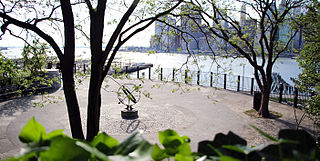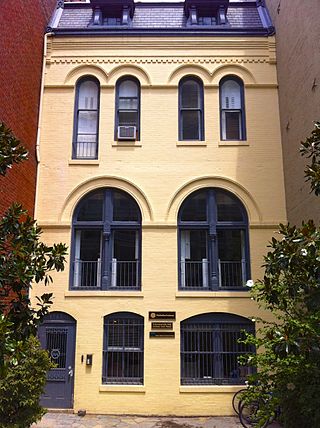Related Research Articles

The University of Tehran is the oldest and most prominent Iranian university located in Tehran, Iran. Based on its historical, socio-cultural, and political pedigree, as well as its research and teaching profile, UT has been nicknamed "The Mother University [of Iran]". In international rankings, UT has been ranked as one of the best universities in the Middle East and is among the top universities of the world. It is also the premier knowledge producing institute among all OIC countries. Tehran University of Medical Sciences is in the 7th ranking of the Islamic World University Ranking in 2021. The university offers more than 111 bachelor's degree programs, 177 master's degree programs, and 156 PhD. programs. Many of the departments were absorbed into the University of Tehran from the Dar al-Funun established in 1851 and the Tehran School of Political Sciences established in 1899.
The Fulbright Program, including the Fulbright–Hays Program, is one of several United States Cultural Exchange Programs with the goal of improving intercultural relations, cultural diplomacy, and intercultural competence between the people of the United States and other countries through the exchange of persons, knowledge, and skills. Via the program, competitively-selected American citizens including students, scholars, teachers, professionals, scientists, and artists may receive scholarships or grants to study, conduct research, teach, or exercise their talents abroad; and citizens of other countries may qualify to do the same in the United States.
The Graduate School and University Center of the City University of New York is a public research institution and postgraduate university in New York City. Serving as the principal doctorate-granting institution of the City University of New York (CUNY) system, The CUNY Graduate Center is classified among "R1: Doctoral Universities – Very High Research Activity". The school is located at the B. Altman and Company Building at 365 Fifth Avenue in Midtown Manhattan. The CUNY Graduate Center has 4,600 students, 31 doctoral programs, 14 master's programs, and 30 research centers and institutes. It employs a core faculty of approximately 140, who are supplemented by 1,800 faculty members from CUNY's eleven senior colleges and New York City's cultural and scientific institutions.

The United States Institute of Peace (USIP) is an American federal institution tasked with promoting conflict resolution and prevention worldwide. It provides research, analysis, and training to individuals in diplomacy, mediation, and other peace-building measures.
The Institute of Pacific Relations (IPR) was an international NGO established in 1925 to provide a forum for discussion of problems and relations between nations of the Pacific Rim. The International Secretariat, the center of most IPR activity over the years, consisted of professional staff members who recommended policy to the Pacific Council and administered the international program. The various national councils were responsible for national, regional and local programming. Most participants were members of the business and academic communities in their respective countries. Funding came largely from businesses and philanthropies, especially the Rockefeller Foundation. IPR international headquarters were in Honolulu until the early 1930s when they were moved to New York and the American Council emerged as the dominant national council.
The American Council of Learned Societies (ACLS) is a private, nonprofit federation of 75 scholarly organizations in the humanities and related social sciences founded in 1919. It is best known for its fellowship competitions which provide a range of opportunities for scholars in the humanities and related social sciences at all career stages, from graduate students to distinguished professors to independent scholars, working with a number of disciplines and methodologies in the U.S. and abroad.

The Social Science Research Council (SSRC) is a US-based, independent, international nonprofit organization dedicated to advancing research in the social sciences and related disciplines. Established in Manhattan in 1923, it maintains a headquarters in Brooklyn Heights with a staff of approximately 70, and small regional offices in other parts of the world.

Iranian studies, also referred to as Iranology and Iranistics, is an interdisciplinary field dealing with the research and study of the civilization, history, literature, art and culture of Iranian peoples. It is a part of the wider field of Oriental studies.

The Middle East Institute (MEI) is a non-profit, non-partisan think tank and cultural centre in Washington, D.C., founded in 1946. It seeks to "increase knowledge of the Middle East among the United States citizens and promote a better understanding between the people of these two areas."

The Asian Cultural Council (ACC) is a non-profit organization dedicated to advancing international cultural exchange between Asia and the U.S. and between the countries of Asia through the arts. Founded by John D. Rockefeller III in 1963, ACC has invested over $100 million in grants to artists and arts professionals representing 16 fields and 26 countries through over 6,000 exchanges. ACC supports $1.4 million in grants annually for individuals and organizations.

The American Center for Mongolian Studies (ACMS) is a US registered 501(c)3 not-for-profit, academic organization which promotes research and scholarship in Inner Asia, a broad region consisting of Mongolia and parts of China, Russia and Central Asia, including Inner Mongolia, Xinjiang, Buryatia, Tuva and eastern Kazakhstan.

The Institute of International Education (IIE) is a 501(c) organization that focuses on international student exchange and aid, foreign affairs, and international peace and security. IIE creates programs of study and training for students, educators, and professionals from various sectors. The organization says its mission is to "build more peaceful and equitable societies by advancing scholarship, building economies, and promoting access to opportunity".
The Iran National Science Foundation (INSF) (Persian: صندوق حمایت از پژوهشگران کشور) is an Iranian government agency that supports fundamental research and education in all the fields of science, engineering, and medical science.

The Center for Khmer Studies is an independent American Overseas Research Center working to promote research, teaching and public service in the social sciences, arts and humanities, as they are related to Cambodia and the Mekong region. CKS also aims to connect Cambodian scholars, students and artists with their international colleagues for the purposes of fostering understanding of Cambodia and Southeast Asia.

The American Institute of Indian Studies (AIIS), founded in 1961, is a consortium of 90 universities and colleges in the United States that promotes the advancement of knowledge about India in the U.S. It carries out this purpose by: awarding fellowships to scholars and artists to carry out their research and artistic projects in India; by operating intensive programs in a variety of Indian languages in India; by sponsoring conferences, workshops and outreach activities; by supporting U.S. study abroad and service learning programs in India; by assisting and facilitating the research of all U.S. scholars in India; and by operating two research archives, the Archives and Research Center for Ethnomusicology and the Center for Art and Archaeology. The AIIS is a member of the Council of American Overseas Research Centers.

Kharazmi University [Former Name: Tehran University of Teacher Training ] is a major public research university in Iran, KHU named after Khwarizmi, Persian mathematician, astronomer and geographer, offering a wide range of undergraduate and postgraduate programs in a variety of disciplines. KHU is considered as the oldest institution of higher education in Iran. It was established in 1919 as the Central Teachers' Institute and gained university status as Tarbiat Moallem University of Tehran in 1974. It changed its name to Kharazmi University on January 31, 2012.
The Association for Iranian Studies (AIS), formerly the International Society for Iranian Studies (ISIS), is a private, non-profit academic organization founded in 1967 in the United States, though it now counts upwards of 1,000 members around the world. The current president is Naghmeh Sohrabi, Brandeis University.
Middle Eastern Americans are Americans of Middle Eastern background. This includes people whose background is from the various Middle Eastern and West Asian ethnic groups, such as the Kurds and Assyrians, as well as immigrants from modern-day countries of the Arab world, Iran, Turkey, and Armenia.
The Center of International Studies (CIS) was a research center that was part of Princeton University's Woodrow Wilson School of Public and International Affairs in Princeton, New Jersey. It was founded in 1951 by six scholars who came to Princeton from Yale Institute of International Studies under the leadership of the center's first director, Frederick S. Dunn. By 1999, its stated mission was to "promote world peace and mutual understanding among nations by supporting scholarship in international relations and national development" and to "support analysis of abiding questions in international security and political economy". In 2003, the center was merged with the university's regional studies programs to form the considerably larger Princeton Institute for International and Regional Studies.
Mirjam Künkler, teaches Middle Eastern Politics at Princeton University. Kuenkler's expertise is in Iranian and Indonesian politics.
References
- ↑ "American Overseas Research Centers". Council of American Overseas Research Centers. Archived from the original on 2012-03-14. Retrieved 2012-03-28.